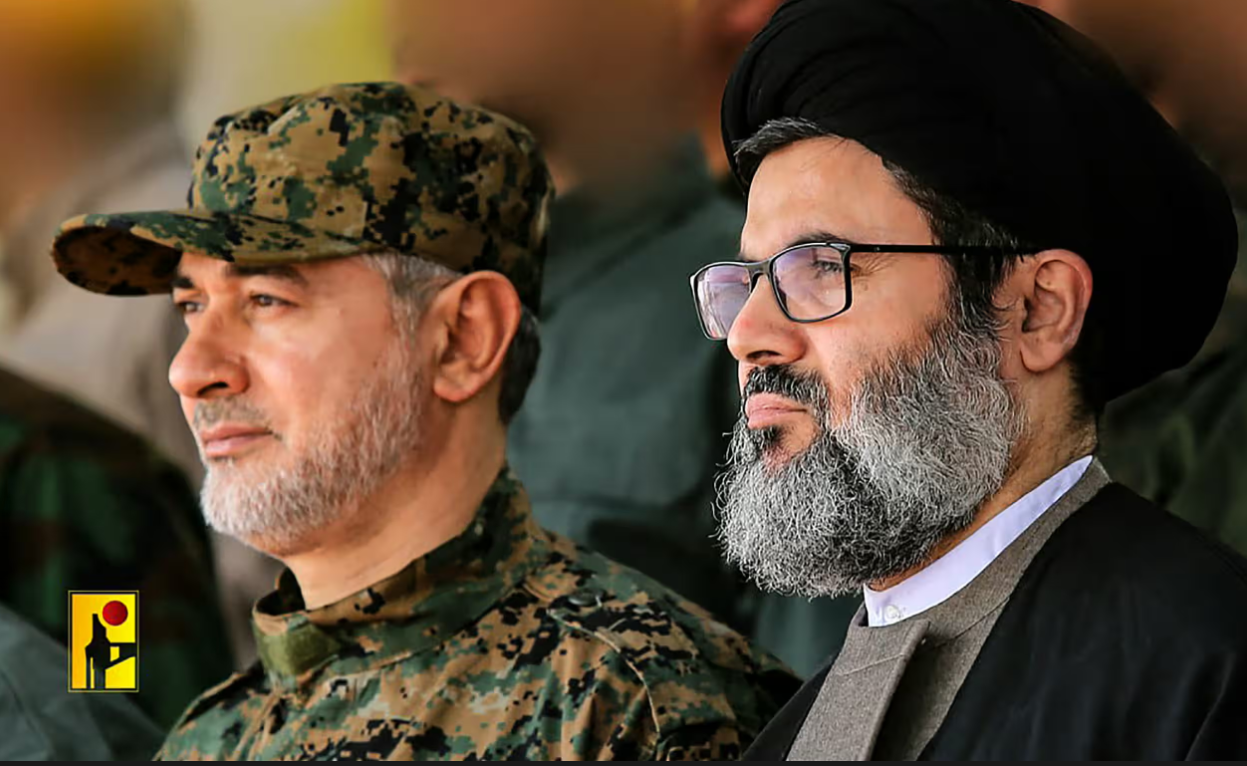Even before the new attacks on September 29, the Israeli military claimed that it had killed most of Hezbollah's senior leaders.

According to The Guardian, when information appeared that Nabil Qaouk, another important figure in the Hezbollah force in Lebanon, was killed in an airstrike in Beirut, it seemed that Israel had almost completed its mission of eliminating the senior military command of Hezbollah.
The assassination of Hezbollah Secretary-General Hassan Nasrallah on September 27 was just the most high-profile and shocking incident in an unprecedented effort that has spanned months by Israel.
Like many other senior Hezbollah leaders, Qaouk joined the organization as a teenager in its early years and went on to hold a series of military command positions. More recently, Qaouk has begun taking on more political roles and is a frequent visitor to Iran.
Other senior Hezbollah leaders killed in recent days include Ibrahim Aqil, a second-founding member of Hezbollah's military wing. Aqil, in his 60s, had been acting commander of the Radwan special forces brigades.
Fuad Shukr, who died in July, was involved in major suicide bombings against American, French and Israeli targets in 1983 carried out by a coalition of Shia Muslim groups that were the forerunners of Hezbollah. He went on to play a key role in developing Hezbollah’s military capabilities, serving as Hezbollah’s chief of staff and a senior military adviser to Nasrallah.
Another victim of the Israeli campaign was Ali Karaki, who was in charge of military operations along the disputed border with Israel and had also carried out a number of covert international roles. Analysts say Karaki was being groomed for a senior leadership role in Hezbollah. He died alongside Nasrallah in the massive Israeli Defense Forces offensive on Beirut.
Another senior leader who died in the incident was Ibrahim Jazini, who was in charge of internal security in Hezbollah. Jazini was a trusted figure in Nasrallah.
Their deaths have left Hezbollah in complete disarray, lacking competent leaders with deep military and international experience.
“Hezbollah is facing a reality that is worse than any worst-case scenario they could have envisaged,” said Naveed Ahmed, an independent security analyst in the Gulf and an expert on Hezbollah.
Meanwhile, Saudi Arabia's Al Arabiya TV channel quoted sources as saying that the Shura Council - Hezbollah's supreme decision-making body - has appointed Hashem Safieddine as Hezbollah's new Secretary General. Safieddine was the former head of Hezbollah's Executive Committee. He is a cousin of the late leader Nasrallah. Safieddine has close religious and family ties to Iran. His son is the husband of the daughter of General Qassem Soleimani, the commander of Iran's special forces, who was killed in a US airstrike in Iraq in 2020.
Unlike Mr Nasrallah, who has lived in seclusion for years, Mr Safieddine has recently made frequent public appearances at political and religious events. With a calm demeanor, he has delivered eloquent speeches at funerals of Hezbollah fighters killed in clashes with Israel over the past year.
Israel’s assassination campaign has so far targeted Hezbollah’s military commanders, while senior political figures have been largely spared. But as Mr Safieddine sits on Hezbollah’s Holy War Council, he could soon be targeted.
However, in an announcement on the Telegram channel on the evening of August 29, Hezbollah denied that Mr. Hashem Safieddine was chosen as the new leader.
With this latest announcement from Hezbollah, it is difficult to predict who will become the supreme leader of Hezbollah.
Despite the death of its leader, Hezbollah said in a statement on September 28 that it would continue its military operations to support Gaza and defend Lebanon. The group launched five rocket attacks on northern Israel after acknowledging Nasrallah’s death.
Although Hezbollah has been hit hard in the short term, analysts say the group is unlikely to be hit hard in the long term because Nasrallah will be replaced by another leader and the group still retains a large arsenal and military strength.
Mohammad Marandi, a professor at the University of Tehran, said Beirut is considered Hezbollah's weakest point because it is also home to Western embassies and people with connections to Western intelligence agencies. However, he said that overall, Israel is not capable of defeating Hezbollah militarily.
Analysts say Hezbollah now faces strategic choices amid a temporary leadership vacuum rather than suffering a blow to its very existence.
“Hezbollah is not going away,” said Yezid Sayig, a senior fellow at the Carnegie Middle East Program. He added that they will be strategically patient even if Iran does not step in to defend them right now.